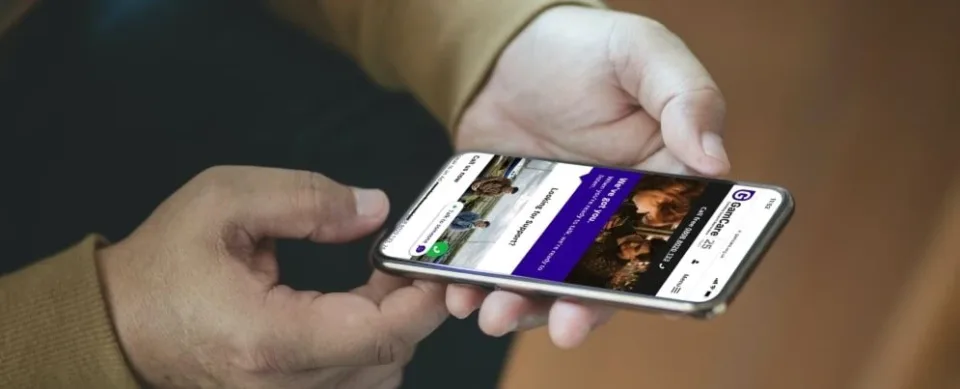What is Gambling Addiction?
Gambling addiction, or compulsive gambling, is a disorder that can affect people of all ages and backgrounds, and it’s characterized by an obsessive need to gamble despite the negative consequences it can have. Like any addiction, it often leads to serious financial issues and even psychological distress, especially since it involves users’ finances.
Gambling addiction is a disorder as players who suffer from it can’t control their urges despite losing big chunks of money. As it takes control over one’s life, the disorder affects every piece of the gambler’s life, from family and relationships, and can also cause sleep disturbances and gastrointestinal issues due to the ongoing stress related to gambling.
At its core, gambling addiction is the inability to stop or control one’s desire to gamble. It’s a compulsive habit that often manifests actively during gambling activities. Addicts often rationalize their behavior and deny that it has become an issue since signs are often subtle, making it difficult for close ones to identify. The first step to solving the problem is for the person to admit he has a problem, as it helps him become more aware of his actions and repercussions.
Compulsive Gambling
Compulsive gambling is a disorder that can affect people of all ages and backgrounds. It is characterized by an obsessive need to gamble despite the possibility of leading to regretful life decisions. In short, compulsive disorder is related to mental health as gamblers’ synapses are wired to only focus on the thrill and winning gratification they get from gambling.
Excessive Gambling
The difference between compulsive and excessive gambling is that someone suffering from a compulsive disorder can’t stop willingly. In contrast, excessive gamblers can still analyze their actions and preventive measures if needed. Each casino has a section where gamblers can self-exclude themselves and avoid entering a degrading spiral toward compulsive actions.
Excessive gamblers take gambling risks willingly, while compulsive gamblers are fixated on the habits they’ve developed.

How to Recognize the Signs of Gambling Addiction?
- Urge to make riskier bets with more sums of money
- Having the “itch” when not gambling
- Constantly battling gambling and stopping gambling.
- The focus is solely on gambling.
- Using gambling as a way to avoid stressful life situations
- Gambling to “get even” despite constantly loosing
- Lying to friends and loved ones about your gambling
- Loss of interest in other day-to-day activities
- Always seeking financial support to support gambling losses
- Toxic behaviors due to gambling addiction.
Responsible Gaming Tips
Avoid Temptation
It’s important to take preventive steps against gambling addiction before it starts and one of the best ways to do it is to establish healthy habits that protect you from developing a problem. One way to avoid gambling temptation is to identify triggers and stay away from them. Common triggers include gambling-related people, places, activities, or objects. For example, if someone is drawn to online poker or casino sites, they should avoid visiting those websites or blocking them on their device altogether.
Recognizing these potential temptations can influence your decisions, help you take control of your actions, and allow you to analyze and take preventive measures. By only implementing this trick and avoiding possible triggers, you can be ahead of already hundreds of people.
Postpone Gambling
The urge to gamble can be overwhelming and challenging to resist, but understanding the nature of gambling cravings is vital for recovery. To postpone gambling, you must first recognize that your craving is a form of desire that arises from the need for reward or pleasure. Once this is understood, you can use strategies to control your urges and put off gambling until you have passed or coped with the craving.
One such strategy is to understand cravings occur and know that they are not infinite. They have an end, and as long as you have control to postpone it, you will also be able to recover from the craving since you have become more self-aware. When gambling cravings do occur, you should already have a go-to plan. For example, once you identify you’re entering a phase, set a plan and do it! This can be calling a friend, starting your favorite game, or going for a walk.
Learn to Manage Stress and Anxiety
it’s important to remember that feelings of restlessness, irritability, and discontentment are signs that you’re feeling overwhelmed and should take a step back. To effectively manage stress and anxiety, it’s helpful to practice mindfulness exercises such as deep breathing, yoga, or meditation, as it helps reduce anxious thoughts and increase relaxation levels. Additionally, engaging in physical activity such as going for a walk or bike ride can be beneficial in reducing stress hormones while increasing endorphins which helps to improve mood. Finally, adjusting emotions through lifestyle changes can go a long way in avoiding falling into the gambling net again.
Develop a Plan to Quit Gambling
Quitting gambling can be problematic, so developing a plan to quit is incredibly important. The plan should include steps to identify triggers and how to cope with them, explore existing support networks that can help, and find positive activities to replace gambling. By creating a plan, you can focus on quitting gambling by providing structure and guidance to your actions. It will also offer the opportunity to assess progress, recognize potential pitfalls, and adjust as needed. Additionally, it is crucial to remember that relapse happens, and the plan should include strategies for dealing with those setbacks. Finally, a plan should have realistic, achievable, and measurable goals, but we will cover this later.
Find Alternatives to Gambling
This is an essential step in breaking away from unhealthy behaviors. Since gambling has become a habit, you must reprogram your mind and habits to find joy and purpose in other activities. Every habit can be changed, and although it might seem difficult to find new activities, with a little effort, it can be done.
- Meditation
- Join a sports team or practice individual sports. Remember what sport you were good at and start with that.
- Become more involved in your family and friends’ life to keep your social circle active.
- Start volunteering by giving back to your local community or find something you are passionate about, like helping clean the forests/rivers in your city.
- Dig deep into your memory and find what kind of hobbies you liked or would like to do.
- Start travelling to learn more about the world.
Think About the Consequences
Individuals going through a gambling addiction withdrawal can experience a mix of emotions that can reinforce their ability to not engage with gambling. Emotional pain is the most common consequence of problem gambling which can result in depression, anxiety, anger, and isolation. In addition, individuals may experience difficulties with interpersonal relationships due to their inability to manage compulsive behaviors or their dwindling financial situation. They may become overwhelmed by mounting debts and a lack of money for daily living expenses such as food and rent. This can lead to further shame or guilt regarding poor decisions that led to losses in money or relationships due to an inability to control gambling behaviors.
Different Gambling Addiction Phases
The Run-up phase of gambling addiction is when players start to gamble more frequently and increase the amount of money they are betting.
The Winning Phase is when the gambler experiences a brief period of success, leading to riskier and higher-value bets being made.
The Losing Phase is when the gambler starts consistently losing, making them increasingly desperate for a win while also stacking up debt.
The Desperate Phase is characterized by increased gambling frequency in an attempt to make up for losses. It’s the stage when resources are depleted, leading to financial problems and feelings of helplessness.
What Can be Causes of Gambling Addiction?
Biological factors
Individuals who suffer from addictive behaviors may have a chemical imbalance in their brains. Specifically, hormones such as dopamine, adrenaline, and serotonin are affected during gambling. Such hormone imbalance leads to increased tolerance for gambling, as it triggers rewards-seeking behaviors – attributed to a higher risk of gambling problems.
Psychological factors
Mental issues are often linked to gambling addiction. There are specific traits such as depression or anxiety which can lead people to find escapism in gambling. As gambling helps users cope much easier with their insecurities, addictive personalities have a much easier way of developing impulsive behaviors such as excessive spending, risk-taking, and even stealing to support their addiction. Psychological and mental traits work together to sustain and develop their addiction.
Social factors
Many people turn to gambling to escape difficult situations or because they feel pressured into engaging with it by friends, family, or society. As a result, people who experience poverty and trauma are at a high risk of developing a gambling addiction. Media and other external factors like social pressure also influence gambling habits resulting in people falling victim to the illusion of escaping poverty.
Comorbidity
Comorbidity, which occurs when an individual suffers from two mental health conditions and often multiple conditions or disorders at the same time, can make it even harder for those struggling with gambling addiction to fight the urge to participate in activities related to their compulsion. This is because the presence of a co-occurring psychological disorder adversely impacts their judgment and decision-making skills. This can further negatively reinforce their actions and lead them to gamble excessively.
Strategies to Change the Gambling Habit
Keep a Gambling Diary

Keeping a gambling diary is important in gaining control over gambling habits. It provides a way to track gambling behaviour and recognize patterns that may lead to gambling addiction. By writing down the frequency and amount of gambling activities, it is possible to identify warning signs of gambling addiction and take proactive steps to address it.
Set Goals
Setting goals can help gambling addicts regain control of their gambling habits and start living healthier lifestyles. Goals should be clear, attainable, and specific so that gambling addiction sufferers are more likely to stay on track. Goals can include setting gambling limits, avoiding people who encourage gambling and creating a budget for gambling activities.
Avoid High-Risk Situations
Avoiding high-risk gambling situations is essential to breaking gambling addiction. This can involve recognizing and avoiding gambling triggers, such as visiting gambling establishments, entering online gambling portals, or participating in gambling activities with a group of people. It also involves setting healthy boundaries with gambling, such as refusing to lend money to others for gambling purposes.
Be Kind to Yourself

During this process, it’s highly important to be kind to yourself and to know that you are going through a process. While sometimes you might slip and find a workaround around your self-imposed boundaries, it’s more important to continue even if you slip. Not shaming yourself and putting too much pressure will help you reach your goals faster.
Voluntary Self-Exclusion
Voluntary self-exclusion is a powerful tool for gambling addicts looking to break their gambling habits. This strategy involves gambling addicts taking the initiative to exclude themselves from gambling activities, either temporarily or permanently. By proactively choosing not to participate in gambling activities, gambling addicts can regain control of their lives and start living healthier lifestyles. Of course, self-exclusion is not a magic element, but restricting gambling activity access can increase damage control.
Look After Yourself

Gambling triggers are accompanied by a lack of focus on one’s health and well-being. This means that while you are preoccupied with gambling and chasing that magic feeling, other elements of your life take the backseat. As a result, you must put yourself first to ensure that you’re on the right track in your addiction process. This means you should stick to a schedule, ensure you don’t waste nights and evenings, are well rested, and keep your diet in check. While these might seem simple rules to follow, they can have a positive or negative effect on one’s progress depending on how they’re applied.
Setbacks and Lapses

Gambling addiction can cause significant setbacks and lapses in your recovery plan because our emotions can get in the way of us achieving our planned goals. Everyone who has experienced moments of vulnerability, especially addicts, can feel a strong urge to pick up gambling again out of desperation. Still, this lapse doesn’t have to be a complete loss. Instead, use it as an opportunity to take a deeper look into yourself and figure out what the trigger was. Then, when the gambling spark ignites, try to build yourself back up by developing alternative activities that can help you stay sober without having to face gambling addiction head-on.
How to Help a Person from Gambling?
- Pros
- Confront the person about their problem and always start off by highlighting the consequences of their actions rather than shaming them. This will give them time to look inwards and assess their actions.
- Suggest the person look for support either within their close group of friends or family or by discussing the problem with a specialist.
- Make the environment trigger-free by talking to people around them so to not encourage them to gamble. This can mean avoiding certain places and not bringing up the addiction.
- Convince the person to entrust the money to someone close to them to avoid having access to gambling money. This means the gambler will only have a fixed daily amount to spend, enough for daily necessities.
- Encourage the person during this fight against gambling addiction by ensuring they are listened to and understood.
- Cons
- Don’t raise your voice when discussing their gambling problem, and don't make them angry, as that can cause them to get triggered.
- The addiction does not define them as a person, so talk to the person without prejudice.
- Make sure that they are not restricted from doing any activities, even if this involves gambling. If they gamble, they will afterward feel ashamed and acknowledge their wrongdoing.
- Addiction recovery takes time, so you need patience, as there is no swift cure.
- Don't seek to hide the issues you or the person are facing from other people.
Recovery Phase
Critical Phase
During this phase of recovery, the individual suffering from gambling addiction is made aware that there is a problem and must take action to address it. In this phase, gamblers have to confront difficult emotions and face the reality of the situation.
Recovery Phase
In this phase, gamblers take positive steps towards dealing with their addiction which can include seeking professional help, joining a support group, or participating in counselling sessions.
Stage of Growth
Gamblers enter this stage when they have learned strategies for managing their addiction and have begun incorporating them into their daily lives. Addicts become experts at identifying successes in their recovery journey and addressing areas that need improvement.
Seeking Professional Help for Gambling Addiction
Recognizing gambling addiction isn’t easy, but it’s the first step to getting help. Seeking professional assistance is critical as it provides guidance and support to break through gambling urges and can empower you to build a life free from gambling. In addition, many responsible gambling resources are available such as gambling support groups, reaching out to ex-addicts, or joining online chat rooms, which provide an environment for people suffering from gambling addiction to find and support one another. There shouldn’t be any shame in looking for help, especially if addicts want to take back control of their own lives. Finally, there are several hotlines and services that offer counseling and financial advice and which can be found on footers of casinos, so make sure you have access to them and contact them whenever you are in need.
If you notice that you can’t control your gambling and that it’s starting to harm you, quitting may be the best option. I know the process is hard but it’s worth the trouble it can bring in the long term. That’s why I prefer to say that self-awareness is important when gambling.






